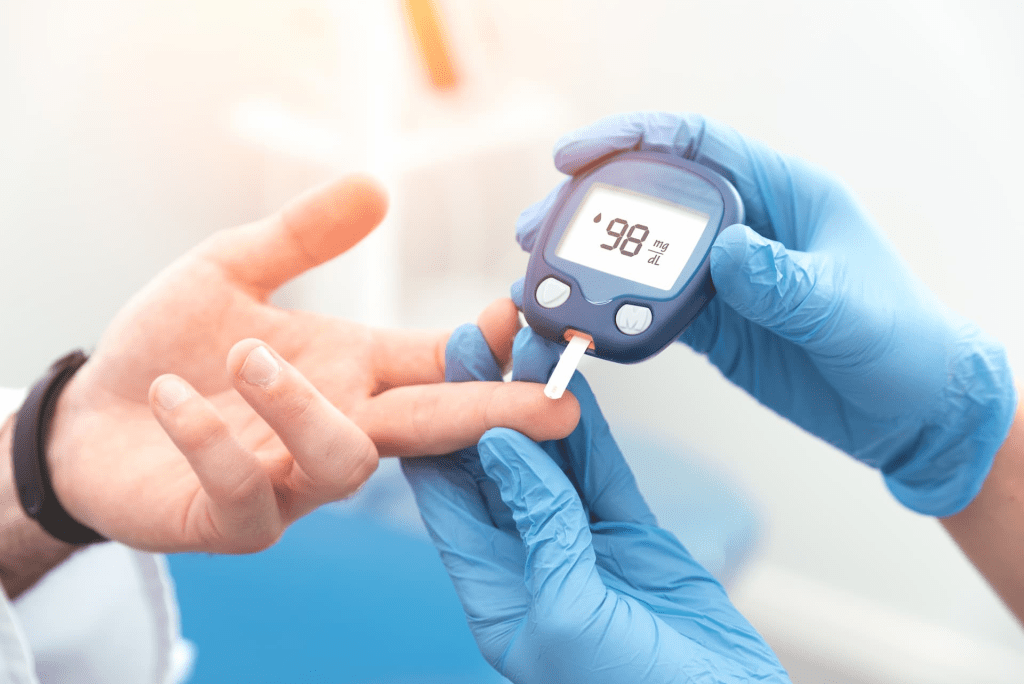How do I check my blood sugar levels?
Use a blood sugar meter (also called a glucometer) or continuous glucose monitor (CGM) to check your blood sugar levels.
A blood sugar meter measures the amount of sugar in a small blood sample, usually from a fingertip. A continuous glucose monitor uses a sensor placed under the skin to measure your blood sugar levels every few minutes.
If you use a continuous glucose monitor, you should still check your levels daily with a blood sugar meter. This will help ensure your monitor’s readings are accurate.

When should I check my blood sugar levels?
How often you should check your blood sugar levels depends on the type of diabetes you have and whether you take medication for it.
Typical times to check your blood sugar levels are:
- When you first wake up, before eating or drinking anything.
- Before a meal.
- Two hours after a meal.
- At bedtime.
If you have type 1 diabetes, or type 2 diabetes and take insulin, or experience frequent low blood sugar levels, your doctor may ask you to check your blood sugar levels more frequently, such as before and after physical activity.
Your target blood sugar values
Your blood sugar target is the level you aim to achieve as much as possible. These are typical values:
- Before a meal: 80 to 130 mg/dL
- Two hours after starting to eat: less than 180 mg/dL
Your blood sugar goals may be different depending on your age, any additional health conditions you may have, and other factors. Talk to your healthcare team about which goals are best for you.
What causes low blood sugar?
Blood sugar levels below 70 mg/dL are considered low. Low blood sugar (also called hypoglycemia) has many causes, including:
- Skipping a meal
- Taking too much insulin
- Taking other medications for diabetes
- Do more physical activity than usual
- Consume alcohol
What causes high blood sugar levels?
Many things can cause high blood sugar (hyperglycemia), including:
- Be sick
- Being stressed
- Eating more than usual
- Not taking enough insulin
If you’re sick and your blood sugar level is 240 mg/dL or higher, use an over-the-counter ketone test to detect ketones. Call your doctor if your ketone level is high. A high ketone level can be an early sign of diabetic ketoacidosis (DKA). DKA is a medical emergency and should be treated immediately.


